 Larry Fessenden's Wendigo is shining example of effective low-budget filmmaking, a film which relies heavily on mood and ambiguity to create a sense of foreboding menace. Never relying on cheap thrills or shock horror to tell its quietly, brooding tale, Wendigo is a film where atmosphere and ingenuity are at a premium, effectively covering up the film's shoe-string budget due to the sense of foreboding doom the film is able to create. The story itself is one of George, a high-strung Manhattan urbanite, who along with his family has decided to head to upstate New York in an attempt to find some peace and quiet. On the way to their secluded cabin, George accidentally strikes and severely injures a deer, leading to a less than ideal encounter with a group of locals. Otis, one of these local men, is beyond furious at George, exclaiming that they've been tracking this deer for sometime. A verbal confrontation breaks out, luckily never escalating beyond words, but there is no question that the bizarre, hostile encounter has left not only George, but also his son, Miles shaken by the contentious encounter. From this point on, the family begins to find themselves haunted by some form of dark, mysterious presence, with Fessenden continually blurring the lines between reality and fantasy, making it impossible to tell if the threat to the families' safety lies mostly in the supernatural, or very much in reality, with the contentious local Otis. In Wendigo, Fessenden's narrative oscillates between its yuppie thriller narrative-the urbanite fish out of water tale, and its supernatural story-the spirit of the Wendigo, yet for most of the running time it remains unclear how much, if any of this, is psychological these characters, specifically the young boy who may be seeing things due to the trauma manifesting from the earlier confrontation between this father and Otis. Nothing is particularly clear in this way, and that's the way which Fessenden likes it, creating an atmospheric horror film in which the young son Miles provides the primary point of view. Larry Fessenden practically invented the book on effective, low-budget horror filmmaking, a filmmaker that routinely uses ingenuity, creativity, and effective use of camera movements, editing, and sound design to create an experience. In Wendigo, Fessenden uses an unsettling mix of time-lapse photography, quick-twitching montage, and slow-crawling photography, to create an atmosphere of menace, with the film's ambiguity adding an extra layer of unease. Thematically, Wendigo plays with this idea of the old vs. the new, touching on the intellectually imperialistic nature of modern thought where spirit and supernatural are viewed as simply fodder, something which is brushed off as creative imagination. The film juxtaposes this theme with the conflicting forces of urban and rural individuals, a film that itself remains vague as to what exactly transpired in its running time. A shining example of effective, low-budget storytelling, Larry Fessenden's Wendigo is a brooding, horror experience, a film which provides absolutely no cheap, shock horror, instead focusing on creating an effective atmosphere of brooding suspense.
0 Comments
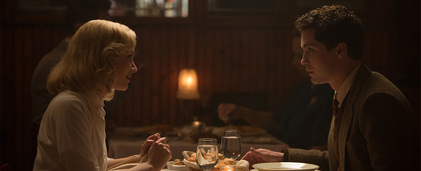 Set in 1951, James Schamus' Indignation tells the complex and ultimately quite tragic story of Marcus Messner, the son of a small kosher butcher from Newark, N.J. A highly intelligent man near the top of his class, Marcus is one of the lucky ones, able to avoid the Korean War draft due to him starting at college in the upcoming weeks. Leaving Newark to study at a small, conservative college in Ohio, Marcus soon finds himself confronted for his rather unique beliefs, specifically for the time period, struggling to deal with both his sexual repression related to growing up in a conservative Jewish household, as well as his cultural disaffection related to him being an atheist at a time in America where it was simply put, quite rare. James Schamus' Indignation is a well-crafted piece of filmmaking which manages to cleverly navigate the token structure for these types of stories, being a film manages to be a powerful testament to the restrictive, anti-freedom based principles of social conservatism, while simultaneously delivering a unique, and mature coming-of-age story about a young man attempting to understand himself, struggling with issues related to love, sex, and independence. The storytelling and structure of Indignation is nothing singular or even particularly unique, yet the screenplay remains clever, playing in the space of this type of story, with one example being how the film is deceptive about Marcus' atheist beliefs early on, implying to the viewer that he himself is Jewish. One thing that really stood out to me about Indignation is how spirituality is not presented solely as a religious concept, with Marcus' existential lamentations about fate and the nature of the universe being concepts very similar to those shared by any organized religion, with the only true difference being Marcus' inability to never surrender his free will as a scholar and intellectual thinker. Indignation evokes an environment in which religious freedom doesn't apply to atheist individuals, expressing how the very treatment in which Marcus receives from the Dean of Students at the university is in reality a contraction on the very ideals which America was founded on, though I'm not so sure the film's writer actually realizes that. While Logan Lerman carries his weight, it's Sarah Goden performance as Olivia, his love interest, which is one of the true highlights of the film, a performance that manages to capture the fragility and schizophrenic nature of a such a damaged character. This is a woman who is unquestionably coming from shattered household, a character who suffers from some form of undisclosed mental illness. She has experienced more hardship and seen more of the world outside of the confines of Marcus' upbringing in Newark, a character who manages to be less naive but also more cynical about the truths of the world. The romance which unfolds between these two characters doesn't feel completely earned throughout the narrative but it's hard not to be compelled by these characters and this mature, muddy love-story between two characters who at times feel like they only have each other. While subtle in its style, Indignation is a well-crafted piece of filmmaking, a film that picks its moments overall but uses composition throughout to evoke the isolation of its two main characters, particularly when they are apart. One of my favorite shots of the film takes place when Marcus enters the Dean's office for the first time of the film, a perfectly symmetrical composition, which Marcus obscures by sitting down at a chair that isn't in the center of the frame. While it's a single composition, I'm not sure there is a better visual sequence in the entire film, with Indignation visualizing the defiant nature of Markus, a man who will not conform to something he simply doesn't believe in. Indignation references both the work of Bertrand Russell and a quote from Ben Franklin, "Democracy is two wolves and a lamb voting what to have for lunch", two men who couldn't share much more diverse political beliefs related to government. I'm not sure if this was intentional or not, but the film paints a rather vivid example of the debate between decentralized vs. centralized government, capturing how democracy itself is important but can still lead to very oppressive cultural forces. Some will scoff at this, all three of you who read this review, but one could argue that this film is steeped in libertarian ideology, being a film that touches on the horrors of interventionism while profiling a man in Marcus who feels restrained by a society in which he does not share the same social perspective as the masses. Without question, James Schamus' Indignation is a film which is heavily critical of 1950s conservatism, specifically related to the religious right, revealing how morality is not a practice that is confined to those who are religious, being a film that not only touches on sexual repression and cultural repression, but also the disgraceful treatment of mental illness which took place during the time. 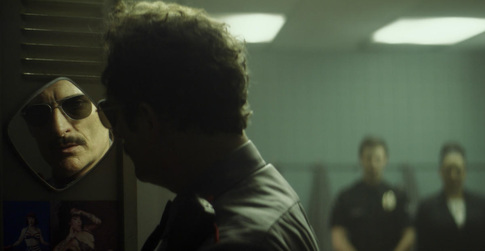 Based on a graphic novel about a police officer who can't die, routinely being killed and resurrected on a nightly basis so he can return to the streets crime-infested streets, Shawn Crahan's Officer Downe provides a gleeful walk through depravity, embracing its absurdity and its comic book roots. Playful in its repugnant, testosterone-fueled aggression, Officer Downe is not a film that will be enjoyed by the faint of heart, a perverse film in nearly every way which in the end struggles to sustain its 90-minute running time. Officer Downe is a film that wastes no time establishing the type of film it wants to be, with the opening five minutes featuring a salacious yet hysterical sex sequences, a scene of violence-inducing ass-kickery by our main protagonist, and an opening monologue which is reminiscent of Taxi Driver's iconic monologue about "the filth on the the streets". Unfortunately the film isn't able to sustain its absurdity and gleeful perversity, with its hyper-activity slowly eroding, buckling under the weight of a narrative and story that truly has very little to say. The morality of the story, centered around a rookie police officer who questioned the psychological freedom of Officer Downe, never fully develops, playfully dancing around the idea but never giving Officer Downe any real characterization besides his robotic, masculine-fueled aggression. We as an audience are told he is human deep down who has his own personal head-space but we are never shown it, making it hard to care about the film's driving story centered around the morality of the situation. It's basically a more absurd version of Robocop, but we never are shown the oppressive nature on this man's psyche making Officer Downe a film that is enjoyable for its absurdity but muddled down when it tries to be something more. Having such villains as a Killer Nun-Syndicate whose primary weapon is indoctrination, as well as a crime syndicate that goes by the name 'The Fortune 500', Office Downe also oddly and hilariously dances around a social commentary that unfortunately never develops, content on being strange and subversive more than making any type of social assertion, which I suppose one could argue isn't necessarily a bad thing. Shawn Crahan's Officer Down can be highly enjoyable at times, offering a creative, subversive bit of juvenile escapism, but unfortunately it struggles to maintain its momentum, being a film that never manages to be anything more than a relatively fun empty distraction.  Achim Bornhak's The Nightmare is a visual and auditory assault on the senses, a film that oscillates between horror film and adolescent drama, never revealing its true intentions to the viewer, opting instead to let its immersive, disorienting experience wash over the viewer, leaving its true intentions up to interpretation. Centered around Tina, a young teenage girl, The Nightmare chronicles a woman who spends a lot of her time trying to fit in, whether it be going to extravagant parties with her friends or attempting to draw the eye of Adam, a boy she seems to have interest in. After a long night of partying, Tina begins to experience strange happenings and discomforting sounds, soon beginning to suspect she is being haunted by a mysterious creature, one which she can only see. The clubbing lifestyle, one full of mind-alternating substances, is the perfect introduction to Tina, setting up a film early on which makes it completely impossible to decipher reality from Tina's own imagination. Beguiling and enigmatic in approach, Achim Bornhak's The Nightmare is a film intent on deconstructing the psychological nature of adolescent life, detailing in Tina a character who feels alienated by those around her, with her insecurities manifesting themselves in the form of this mysterious creature. While not didactic in the slightest, The Nightmare methodically reveals a character in Tina who is a bit of a loner, one who has succumbed to the pressures of adolescence in which fitting in is paramount and being an independent presence is particularly frowned upon. Nearly all of Tina's interactions with this creature in one way or another are symbolic representations of adolescence-fueled struggles, whether it be late night binge eating, self-harming, or peer-pressure induced decision-making, the interactions between Tina and this mysterious creature continually evoke aspects of Tina's internal alienation, insecurities, and struggle to fit in. While certainly up to interpretation, the finale, in which Tina shows off her newfound, mysterious friend to her school friends with Pride is a perfect conclusion to a strange, beguiling experience, a sequence which in itself seems to suggest that Tina has conquered her own insecurities, proud of her imperfections, with the mysterious creature representing all of her imperfections and insecurities that left her in a state of alienation, with her now showing them off, as if to symbolize her independence to the world. Featuring a bombastic, electronica soundtrack, and heavy use of handheld photography, which gives the whole film a more chaotic, lived-in feeling, The Nightmare is a film which invites the viewer to enjoy its strange, beguiling ride, being a film that manages to remain enigmatic while simultaneously touching deep-seeded aspects related to the pain, alienation, and self-inflicted pain which make up the tough road of adolescence.  Mia Hansen-Love's Things to Come is a mature, thoughtful, and uplifting character study of Nathalie, a passionate woman and student/teacher of philosophy, who reveals in the pleasures of critical thinking and the vast treasture trove of gifts it supplies to not only her high school students but her own family and life. Married with two children, who themselves are approaching adulthood, Nathalie's life is quite hectic between time dedicated not only to her family, but also her former/current students, as well has her possessive mother, who herself suffers from some form of mental instability. One fateful day, Nathalie learns that her husband is leaving her for another woman, a decision that thrusts this middle-aged woman into a new state of freedom and the unknown, an act that forces Nathalie to reinvent herself yet again, with this newfound sense of freedom she had long lost. A film detailing the middle life crisis of a woman in Nathalie, Mia Hansen-Love's Things To Come isn't a film that reinvents the wheel when it comes to intricate characterizations of longing, control, or independence, but it does introduce a host of interesting observations about humanities penchant/desire for attempting to understand and grasp the great complexities that make up humanity and life itself. Things To Come an uplifting character study, a film that is quietly profound in its examination of humanities penchant for control and understanding, detailing a character in Nathalie herself who has always felt in control of the world she inhabits, gaining such rich contexual understanding of humanity, society, and life through analysis of text and historical analysis. In this setting of her life, one in which she cares for a husband, two children, and an ailing mother, Nathalie is in complete control, but when her husband shocks her with the revelation that he is leaving her for another woman, Nathalie is thrown into a state of minimalistic disarray, unable to control her emotions centered around the idea that her life and everything she knows is slowly unraveling in front of her very eyes. Nathalie's treatment in this story is never overly dramatic or overwrought, yet Mia Hansen-Love's Things To Come captures the shift in this woman's temperament, becoming far more dramatic and hasteful after learning of her husband's deceit, with Isabelle Huppert's performance giving off a quiet sense of panic in the calmer moments. Nathalie's truth in life has been shattered overnight by her husband's departure, a character who in a sense released from the domesticated pillars of her existence to find her new semblance of peace. She is a character who doesn't even realize how much she relies on the systems in place in her own life, with this stark change to her life sending psychological shockwaves to her psyche, one which forces her to answer existential questions about her life. Things To Come in this sense exhibits the ever changing lexicon of an individual's personal truth, detailing in Nathalie a woman is through critical thinking is not beyond reproach, but simply an individual who needs time to reestablish her hopes, dreams, and desires in this world. She has lost control of the world in which she knows, slowly regained her personal independence, and in turn Things To Come beautifully deconstructs the difference between these two concepts, with control being a selfish-fueled initiative, while true independence is deeply personal. Nathalie's control over her circumstances, a well-structured life in which her familiy and relationships were known and structured, wasn't as freeing as she truly believed, being a character still very much a victim of her circumstances. While she got her intellectual curiosity and independence from her academic endeavors, her personal life never managed to supply such independence, being a character very much trapped by the control's of her life. It's through force, aka her husband pulling the plug of their relationship, that Nathalie begins to remember the true nature of her independence, one in which she is free to think and act for herself, free from her false sense of control, one which in the end leads her to a much happier place where her connections with both her children and ex-husband feel as if they will be better in the long run. Mia Hansen-Love's Things To Come is a mature and introspective examination of later adulthood, a film that is both honest and heartfelt about the nature of independence, personal freedom, control, and responsibility.  Kenneth Lonergan's Manchester By The Sea is a deeply moving portrait of grief, loss, and the deteriorating effect on the psyche such emotional trauma can cause, a film which is genuine about how difficult it truly is to heal from tragedy, detailing the life of a man in Lee Chandler who struggles to deal with his tumultuous past. Oscillating between the past and present, Kenneth Lonergan's Manchester By The Sea never resorts to simplicity or didactic means when telling its tale. It's a film that slowly and subtly consumes the viewers, always giving the audience enough detail but never too much when it comes to revealing the true complexities of its family-centric tale. Lee Chandler's relationship with his nephew Patrick, who he was shockingly rewarded sole guardian of after his brother's death, is the strength of the film, two characters who each are struggling with not only their own loss but how to be empathetic to one and other. The healing process which takes place between these two characters is slow, yet organic, with Manchester By The Sea's revealing the long, slow fight associated with depression and pain. There is no happy ending in Manchester By The Sea but there are moments of hope throughout, with the film brilliantly capturing the tedious nature of psychological healing, acknowledging that one may never truly heal from such loss, while recognizing that the path back from darkness is more so than not a long-winded marathon not a sprint. Lee is a character who has effectively given up in life, a man who has grown accustomed to wallowing in his own grief, uninterested in attempting to recover from the horrible tragedy of his past. Through this character Manchester By The Sea displays the relationship pain & loss has with anger & volatility, as Lee occasionally has violent, explosive outbursts, episodes rooted in his inability to hold in his inner anguish any longer. Haunted by his past, Lee is a man who stews in his own hatred for himself, with his violent outbursts intentionally aimed at causing him the most pain - whether it be punching through a glass window, or picking a fight with a group of men, a fight that he himself knows will end in physical damage and pain to himself. An expertly crafted drama, Kenneth Lonergan's Manchester By The Sea shows a great sense of silence and spacing, a film that routinely wallows in the emptiness of its compositions, using dialogue much more sparingly than most film's of its ilk. It's through this silence that Lonnergan's film exhibits the ethos of despair, one of disconnection and lack of communication, with Lee in particularly being a man who has very little interest in any from of human connection, whether physical or mental, after the tragedy that shook the very foundations of his life. Dealing with such complex drama, Manchester By The Sea masterfully navigates the waters of sentimentality, never feeling emotionally manipulative or overwrought in the slightest, with the filmmaker's intentions only being to deliver an honest and genuinely felt portrait of grief and depression. Kenneth Lonergan's Manchester By The Sea isn't a film which positions itself for the happy ending, it instead simply focuses on being honest about its character's and their pain, delivering a profound portrait of depression and grief, fully recognizing the destructive power and long-reaching effects which tragedy can have on the human psyche. 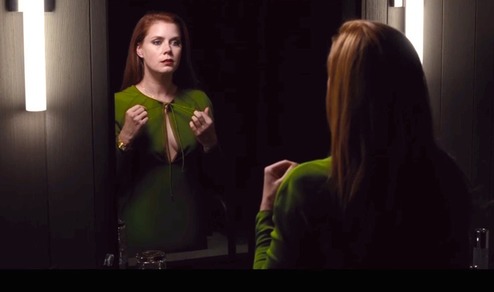 Tom Ford's Nocturnal Animals is the type of pretentious dribble I feared, a tonally tone-deaf film which features a lavish aesthetic but extremely simplistic characterizations. Nocturnal Animals is a film which features very little in terms of introspection, yet it seems to think it is delivering something profound or thought-provoking, leaving it somewhere in-between, and at times a tedious exercise in overwrought drama. Featuring a facade of faux-emotion, specifically centered around one woman's loneliness and regret, Tom Ford's Nocturnal Animals is a story that is at times unintentionally funny in its self-series demeanor, making it a film that can be hard to take seriously at times, due mostly to it featuring a main protagonist that garners little empathy from the audience. Nocturnal Animals is a story that is pulpy and unnerving, yet Ford seems to want the best of both worlds, stuck in a self-serious mindset, attempting desperately to tell this tragic, heartfelt tale of one woman's tragic descent in which she realizes that her whole life was a lie. The juxtaposition between the 'story within a story' and Adam's character's loneliness is clever at times, but per usual for this film, it's rather vapid in nature, with visual cues attempting to make the connection between the two characters, but little substance beyond that. While watching Tom Ford's Nocturnal Animals I couldn't help but think that only Michael Shannon and Aaron Taylor-Johnson knew the type of movie they signed up for, each delivering performances that are kinetic and playful, performances that fit the pulpy nature of this story, a concept which seems to have been lost by the filmmakers involved. Good actors typically, Jake Gyllenhaal and Amy Adams are atrocious in this film, both delivering performances that are so overwrought that I couldn't help but find the situations they find themselves in more funny than dramatic, which is quite a problem considering the extreme nature of the story in which these characters find themselves. Perhaps half the reason the film is such a glorious tonal failure is the disdain Tom Ford shows for his characters, as the narrative shows absolutely little empathy for its main protagonist, played by Amy Adams, almost gleeful in the end about her despair. Nocturnal Animals could have easily been a fun, pulpy thriller but it unfortunately attempts to be something more, instead delivering a rather laughably simplistic commentary on materialism which is one-dimensional and simply uninteresting.  Expertly crafted with a sense of lingering tension and foreboding dread, Amat Escalante's The Untamed is a subversive horror film exploring sexual desire, touching on how our primal instincts often conflict with our intellectually based morals, values, and culture which have been ingrained in humanities psyche by civilized society. Blending elements of science-fiction, horror, and Amat Escalante is subversive horror film tapping into the fundamental nature of pleasure, deconstructing how it's an essential aspect of life but also inherently selfish and destructive force which can cause harm when taken too far. Allegorical in nature, The Untamed tells the story of a Alejandra, a young mother of two boys, whose sexual needs are neglected by her husband Angel, a man who spends many nights away from home, involved in an extramarital affair with Alejandra's own brother. When the mysterious Veronica enters into the picture, all three characters soon finds their lives in a state of upheaval, with a mysterious malevolent force offering them maximal pleasure which ultimately leads to destruction. Amat Escalante's The Untamed is a brooding with atmosphere and dread, a fantasy film that provides a poignant and subversive study of sexual gratification, one that both reveals the importance of pleasure but also the inherent destruction it can bring when taken too far due to its inherent selfishness. A character drama with fantasy and horror elements, aspects of The Untamed reminded me of Pasoloni's iconic film, Teorema, with Veronica's calming, supportive, mysterious presence supplying comfort and companionship to the characters of both Alejandra and her brother, with Escalante's skilled direction suggesting that something evil is lurking beneath the surface. There is a subtlety of danger that engulfs this entire film, with Escalante crafting a mood the immersive and doesn't let up, relying heavily on slow-crawling camera movements to create this film's forboding sense of dread. Religious imagery is sprinkled through the film, lurking in the frame behind these characters, as if Amat Escalante wishes to suggest that religion is merely one potential stop-gap between humanities primal sexual desires, aiding in protecting us form the destructive qualities of pleasure. Perhaps Escalante's perspective is one of frustration when it comes to sexual repression which is an inherent aspect of much religion, with Alejandra's sexual repression only leading her down a path of destruction when she finally is able to tap into her sexuality. Rooted heavily in fantasy and science-fiction, Escalante's The Untamed works so well due to its strong characterizations and human elements, with Alejandra in particular being a character the audience can't help but root for, a woman who is completely underappreciated by her husband, a man who simply views her as a support vessel but nothing at all when it comes to sexuality or human desire. Subversive, cryptic, and well-designed, Amat Escalante's The Untamed is an alluring examination of humanities' sexual desires, a film that recognizes both the importance of such primal urges, but also the destructive power which can exist when one's own sexual gratification is taken too the extreme.  Light in tone and full of youthful exuberance and possibility, Nele Wolatz's The Future Perfect is a whimsical tale exuding optimism about the future, detailing the experiences of Xiaobin, a young Chinese girl who has just moved to Argentina to reunite with her family who own a laundromat in Buenos Aires. Struggling to adjust to new culture and language, Xiaobin enrolls in a class specifically designed for Chinese immigrants, yet her newfound independence in learning the language is offset by the restrictive chinese culture which her parents still hold onto, one which includes arranged marriage. Exploratory, whimsical, and creatively told, Nele Wohlatz's The Future Perfect is a film which should be celebrated not only for it's carefree optimism but also in how it plays with narrative structure, creatively placing the viewer into the head-space of our main protagonist, narratively encapsulating the sense of possibilities this young girl dreams about, being a film that very much exudes optimism. Xiaobin is a character confronted throughout the film, not only by her parents' traditional ways but also having to learn a new language, and the audience follows this character as she navigates these choppy waters, attempting to figure things out on her own. The sense of possibility the film creates is refreshing, charming, and authentic, with Xiaobin lamenting over all the possibilities which her future may hold. Stylishly minimalist overall, The Future Perfect does feature some quietly assured moments throughout, particularly how little time is spent at Xiaobin's families residence. Her parents and the interior of the home is barely shown at all, a conscience decision by the filmmakers which visually expresses Xiaobin's independence, signaling a character who must do things on her own in an effort to figure out what she truly wants out of life. Quietly compelling and minimalist in scope, Nele Wohlatz' The Future Perfect reminded me of Hong Sang-soo's work, being a charming a whimsical character study full of optimism, detailing a young woman in Xiaobin who is trying to forge her own path. 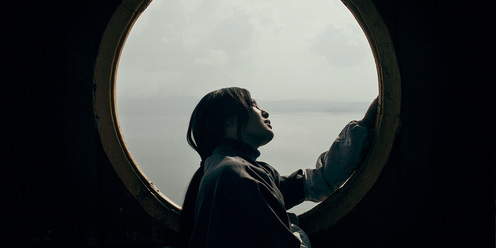 Yang Chao's Crosscurrent is cinema in it's purest form, an absolutely stunning achievement that is soulful, meditative, and transcendent. Centered around a ship boat captain who is struggling to cope with the death of his father, Crosscurrent is a film which uses visual lyricism to provide an existential examination of life itself. A film which places little weight on narrative plot points, Crosscurrent is a film brooding with atmophere, spirituality, and universal truth about the human condition, relying heavily on it's visual acumen to tell a story that is both profoundly intimate yet universally expansive. A piercing study of longing, emotional strife, and hope, Crosscurrent captures the transient power of love and connection, with cargo shit captain adrift at sea, the expansive Yangtze River providing the perfect symbolism for the film's introspective examination of suffering. The visuals throughout Crosscurrent are nothing short of masterful visual storytelling, with Yang Chao's skillfully using wide compositions and opens spaces to capture the emptiness of his main protagonist. It's quite frankly hard to put into words the serene beauty of Crosscurrent, with every frame of this story evoking the deep-seeded emotions of this story of love and loss. The Yangtze River itself is a central character in the film, a spiritual force, so vast and all consuming, coming to symbolize the harmony, joy, and pain of life itself. The barren seascapes evoke a sense of isolation and solitude, with this magnificent force of nature being both and provider and a destroyer for the people of China, a force of nature that rejects the changing sands of time itself. The slow moving currents of the river mirror provide the perfect juxtaposition with our character's intimate struggle, providing context about the universal connection all humankind has to pain, suffering, and love itself. What Yang Chao has crafted with Crosscurrent is truly remarkable, a film of such visual lyricism that beautifully captures the human condition itself, detailing our relationship not only with nature but faith, love, pain, suffering, and hope. A masterpiece of cinema in its purest form, Crosscurrent is a soul affirming experience of that transcendent power of art. |
AuthorLove of all things cinema brought me here. Archives
June 2023
|
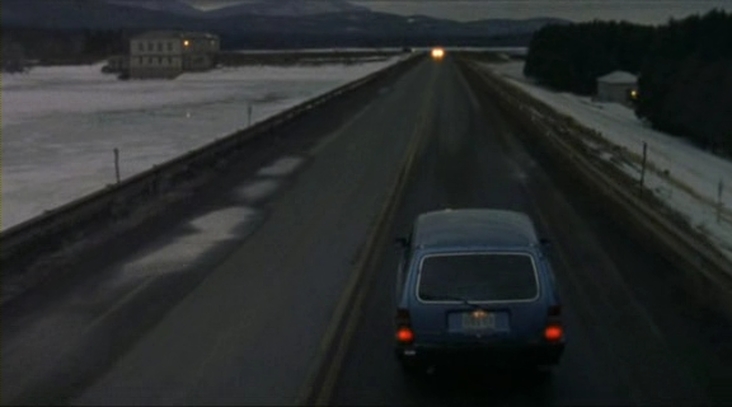
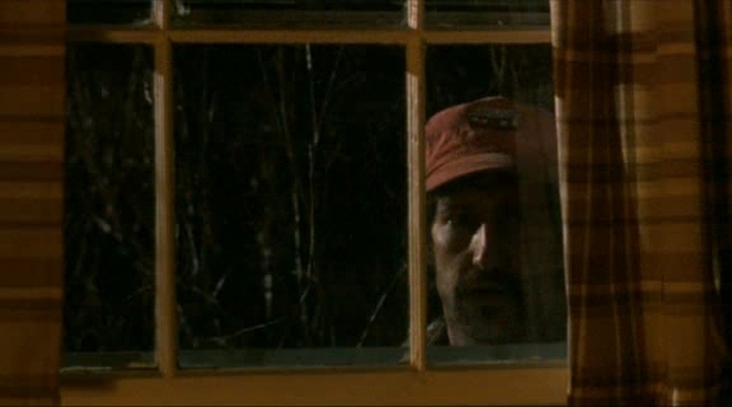
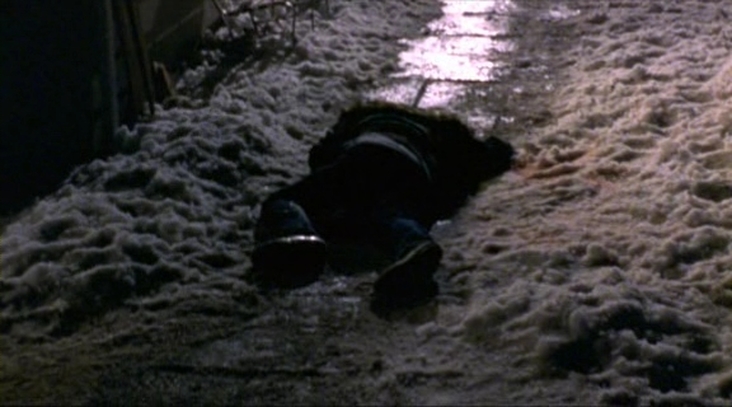
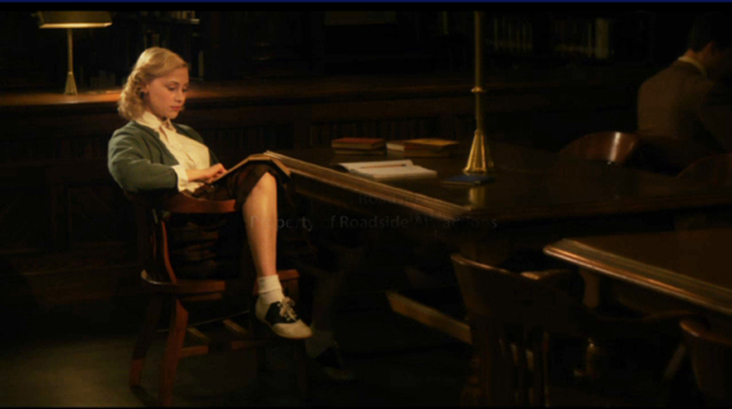
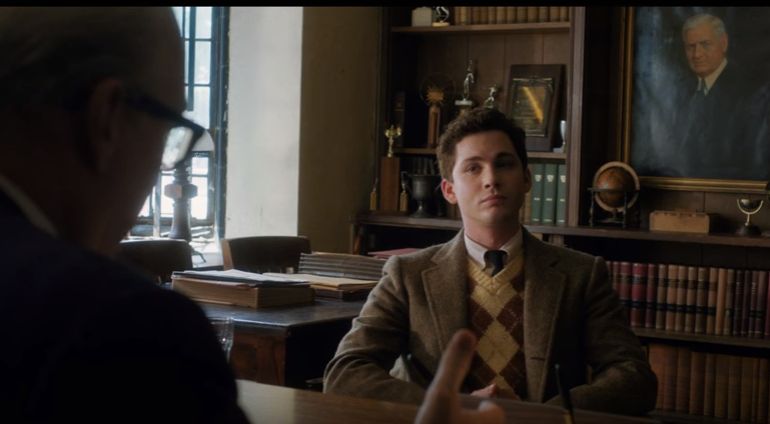
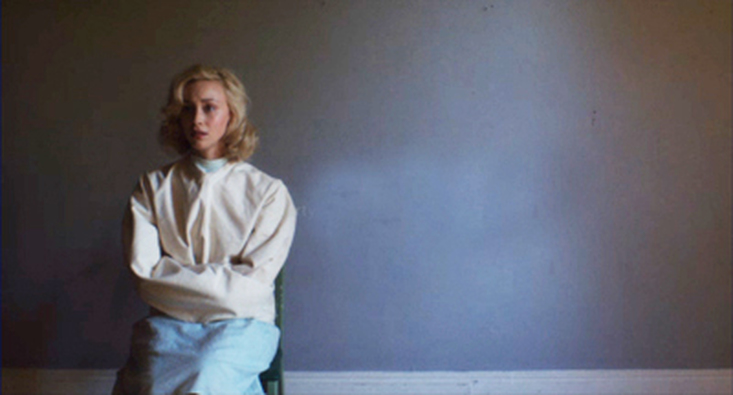

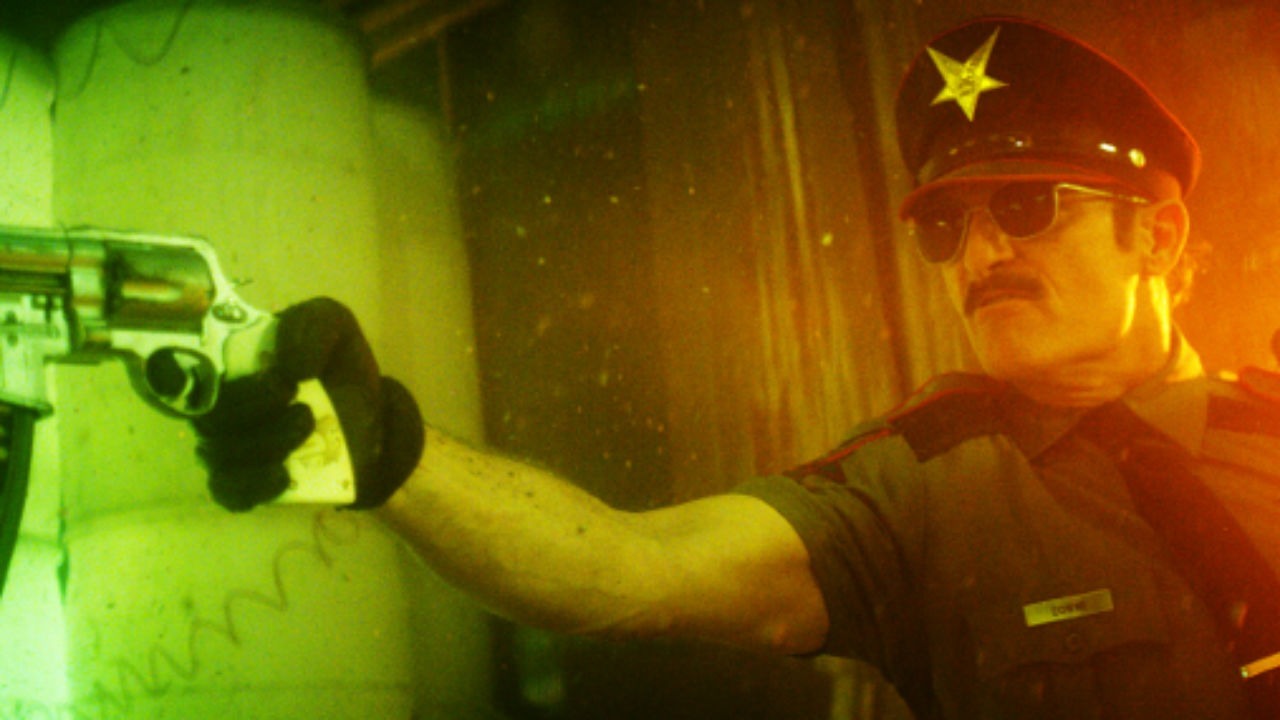
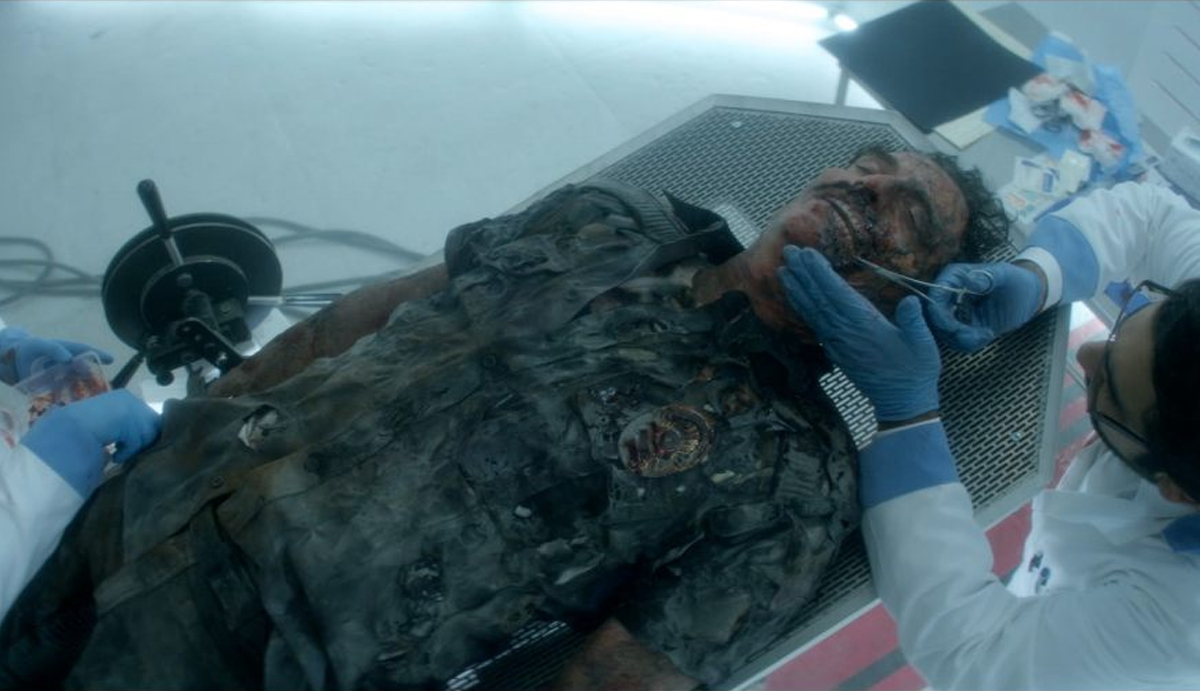




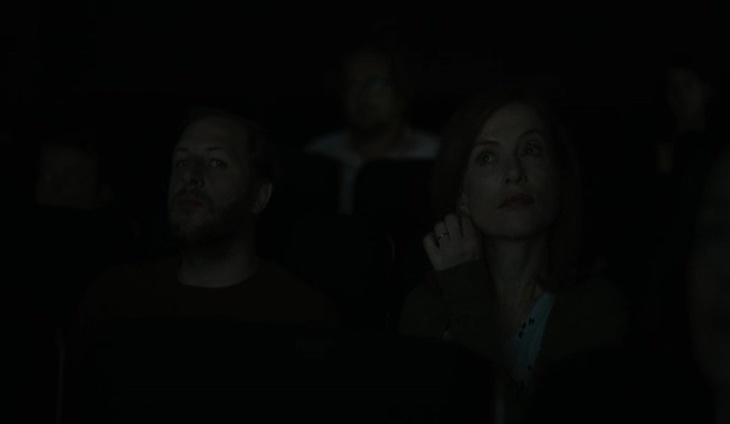
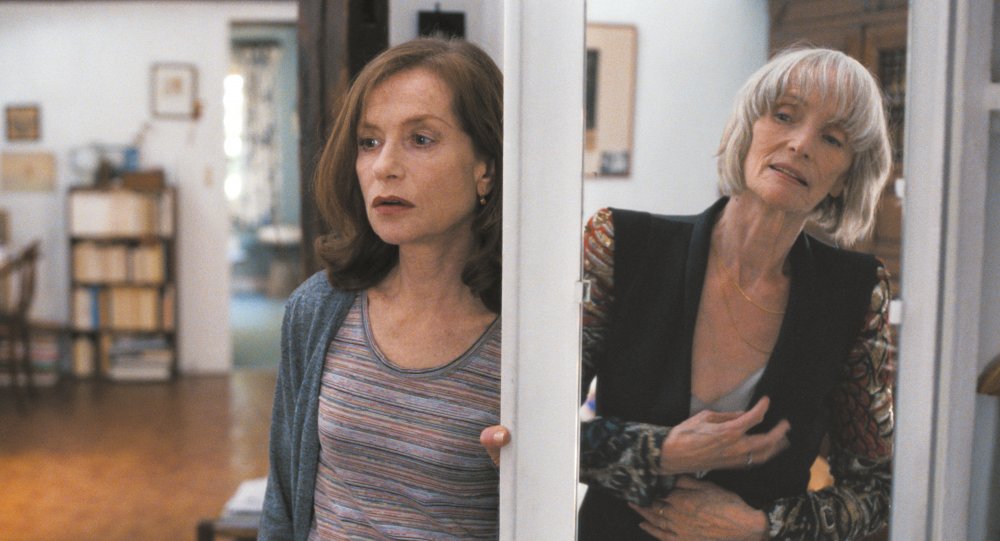
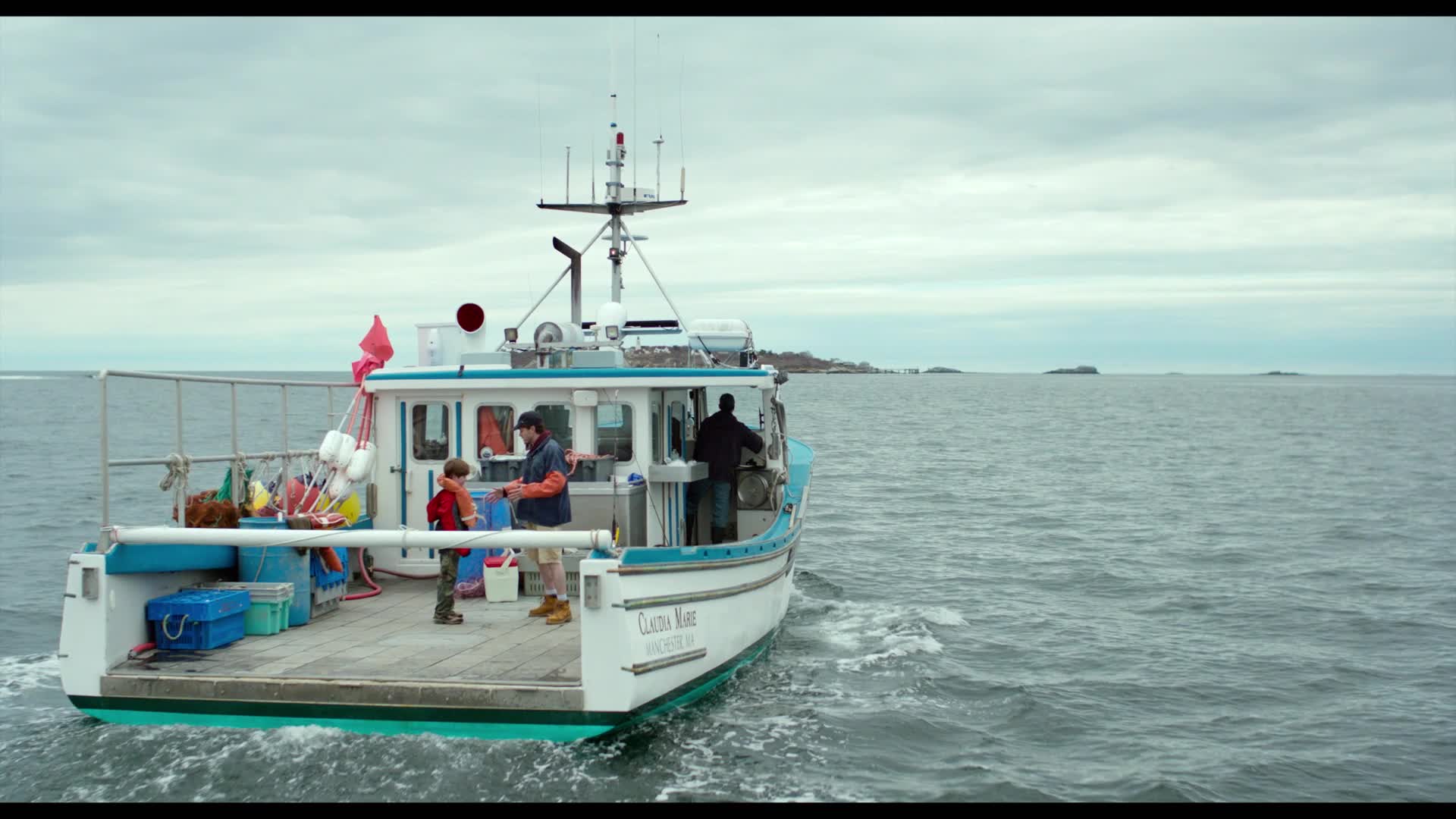
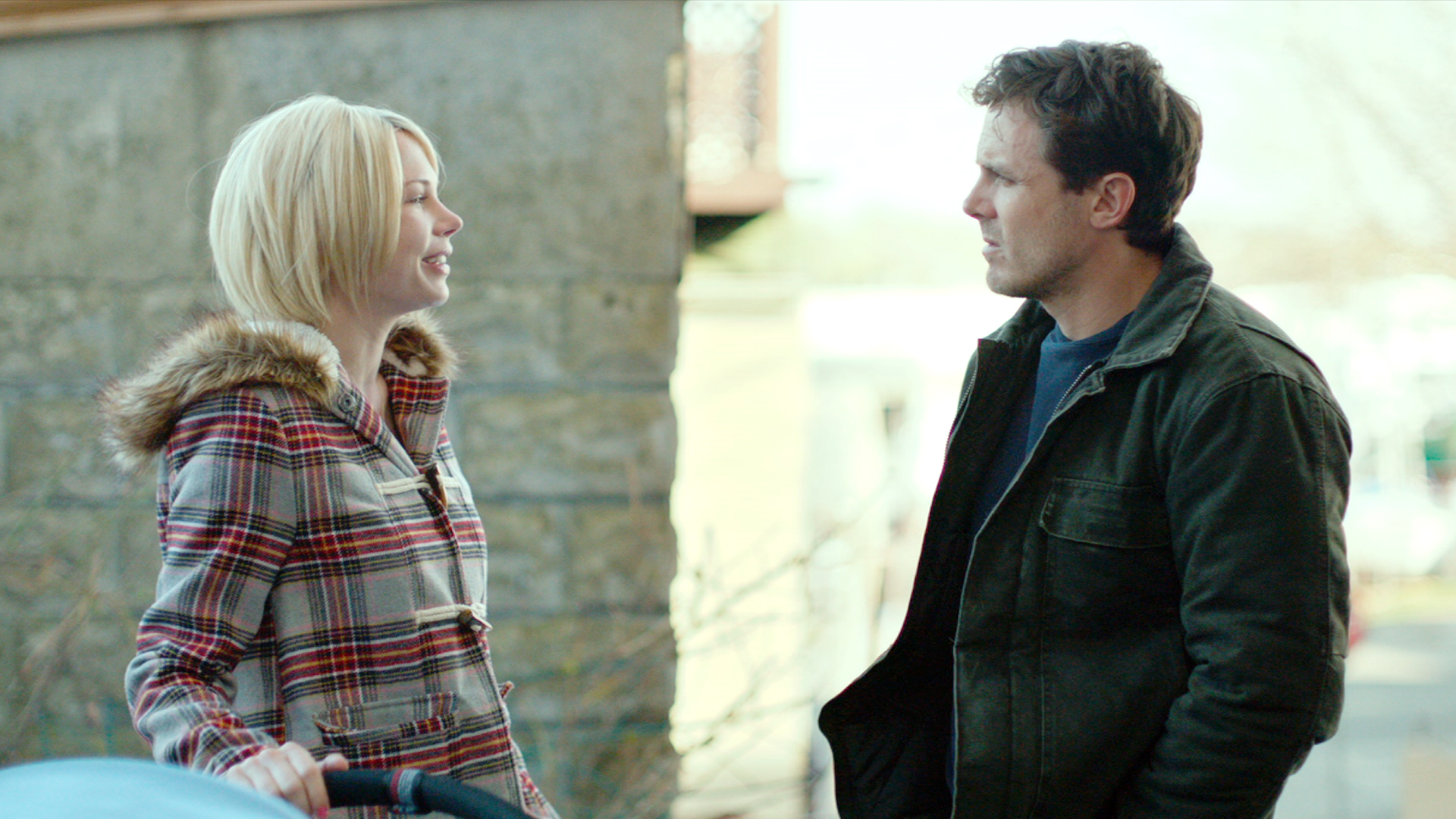
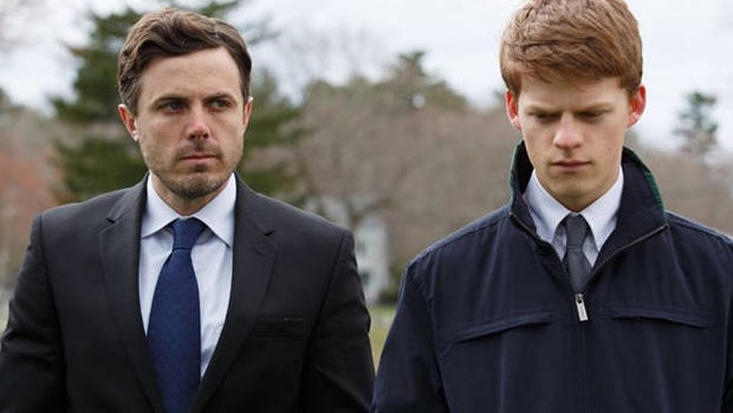

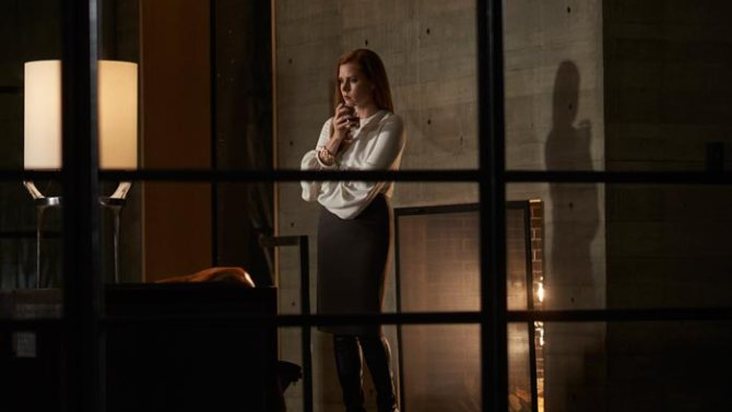

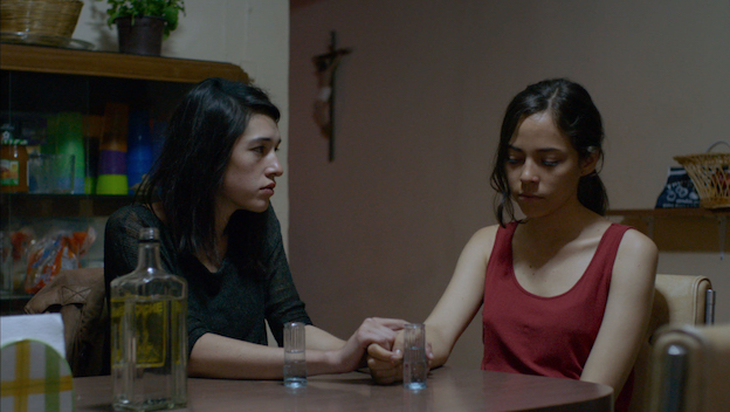
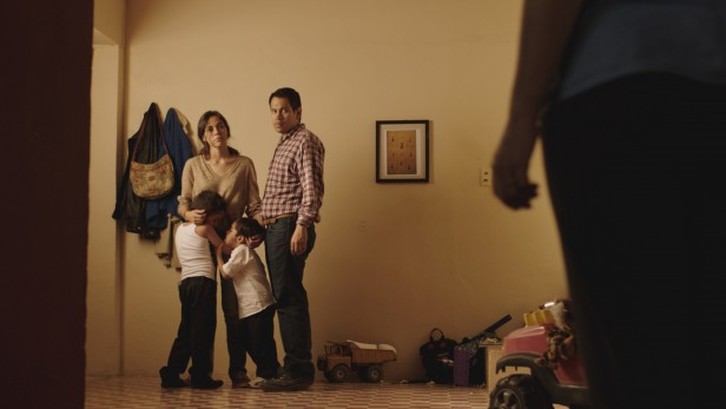
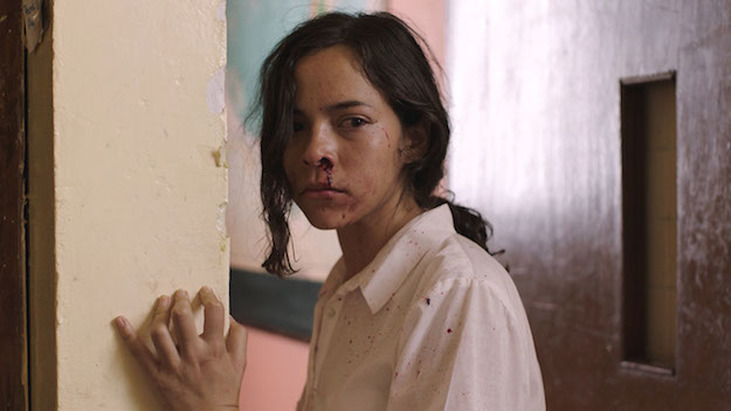

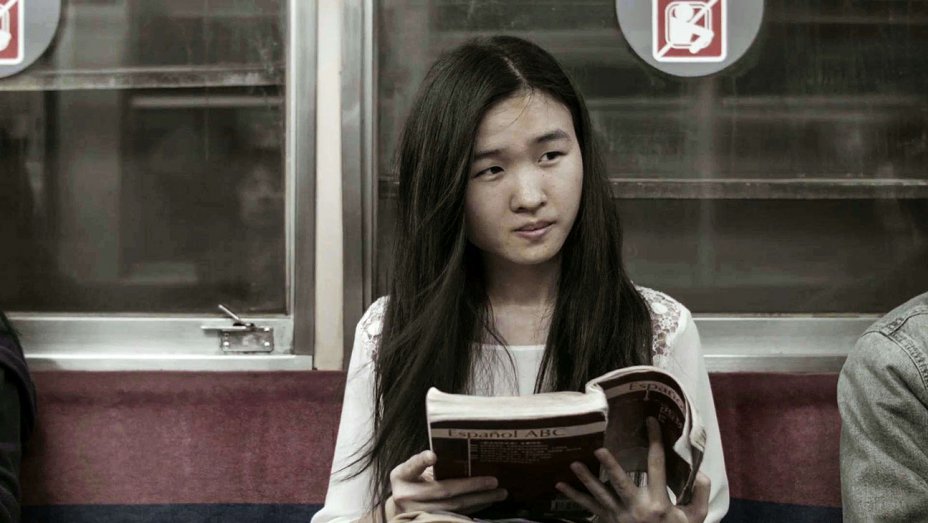
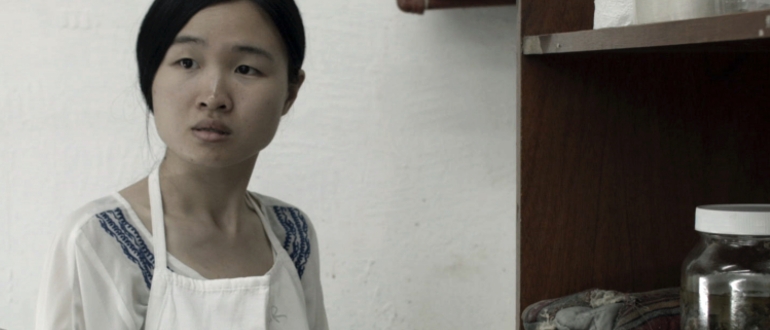

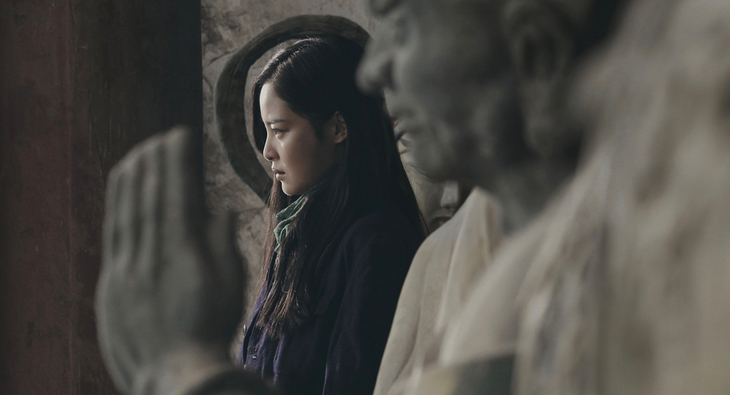
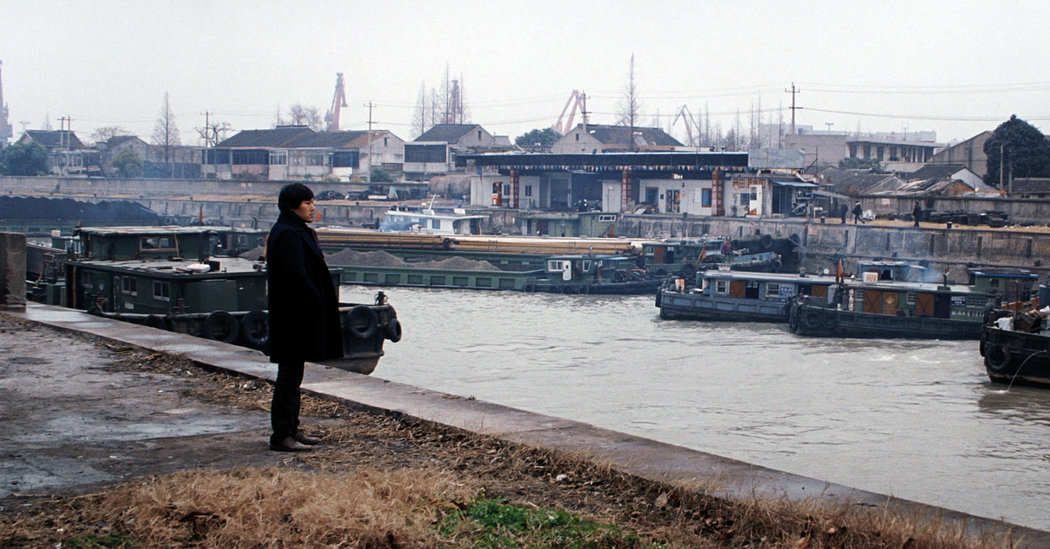
 RSS Feed
RSS Feed
